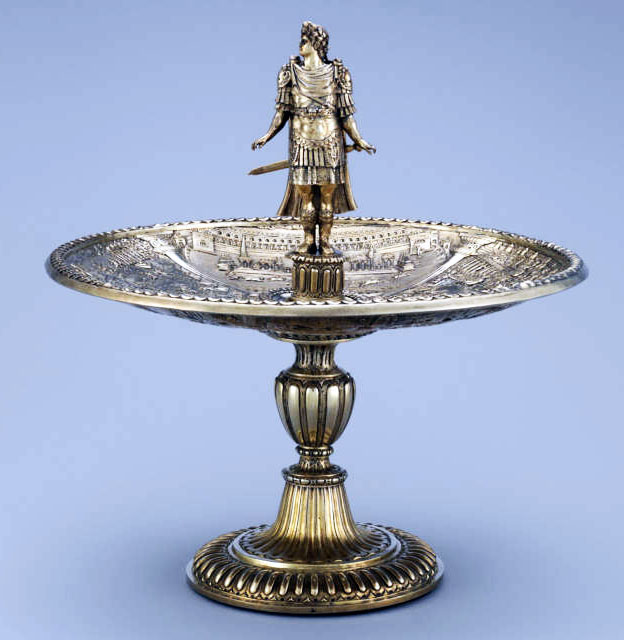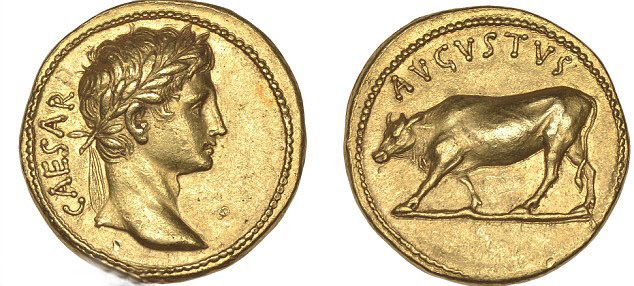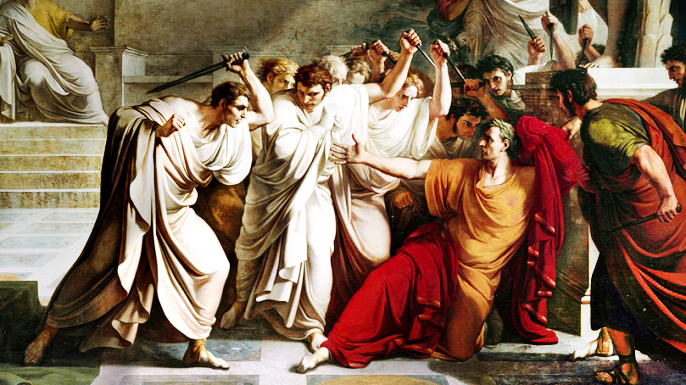We are now in the month of August, named after Augustus Caesar. Born in 63 BC, he is known for an astonishing two centuries of peace within the Roman Empire that began under his rule. He was also a fascinating, driven individual, who was the most quotable Emperor of Rome.
Born Gaius Octavius, Augustus, a name that he adopted when he became Emperor, came from a wealthy family with close political ties. His father was a senator and his mother, Atia was Julius Caesar’s niece. Due to this close relationship, he was entrusted to the care of Julius Caesar and his sister, Julia Caesaris.
Octavius would always jump at the opportunity to fight alongside Julius Caesar. He took part in the battles in Africa, where Rome emerged victorious. Soon after, he sailed to Spain to aid his uncle, but his ship was sunk before reaching port. Octavius had to traverse enemy lines to reach Caesar. Impressed by his imperishable determination, Caesar adopted Octavius as his son and unbeknown to him, named Octavius as heir to the throne in his will.
Julius Caesar was assassinated on the Ides of March in 44 BC while Octavius was away studying military tactics. Upon his return, he was informed of his heritage, which he then took responsibility for, even after facing political opposition. After defeating Antony and Cleopatra in the Battle of Actium, he became the first Roman Emperor and took the name Augustus, which meant lofty and serene. He assumed the mantle of power with learned and inherent skills. A genius tactician and an exceptional military strategist, he was extremely effective when dealing the people conquered by Rome. He would reassure them that his motive was peace, even when he was faced with civil disturbances in the provinces. His objective was to avoid warfare and allow the people and lands conquered to flourish. In return, he would provide the protection of his powerful army. This significantly increased tax revenues.
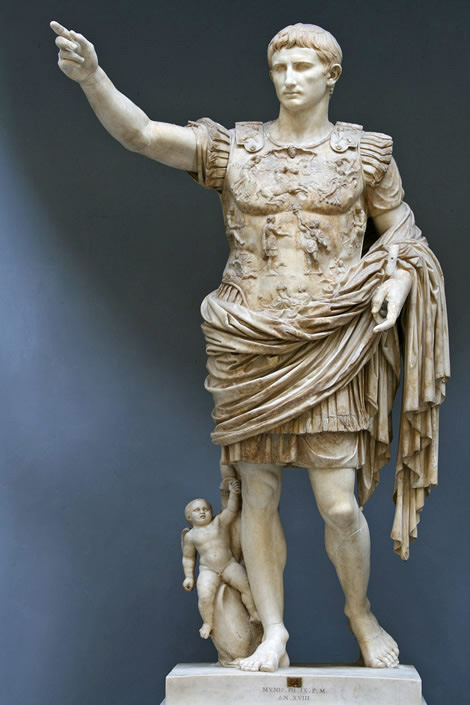
He ushered in an era of peace and stability following the chaos of the civil war period. Augustus patronized art and artists such as Virgil and Ovid; secured the borders; reformed the army and reorganized Roman society, passing many laws intended to restore morality. Trade expanded, new businesses began throughout the Roman provinces and thus began an age of Roman prosperity.
Rome’s first Emperor, passed away in the month named after him in 14 AD, a month short of turning 77. His famous last words to the people of his empire were, “I found Rome a city of bricks; I leave it to you as a city of marble.” To his more personal associates, he said, “Have I played the part well? Then applaud me as I exit.”
Here are some of inspiring Augustus’ quotes which will provide a glimpse into his genius. As you read them, you could easily mistake some for the words of Benjamin Franklin and the “Old Farmer’s Almanac,” but Augustus’ words were 1700 years earlier.
On practical matters he wrote: “Practice, the master of all things” and “Whatever is done well enough is done quickly enough.” His briefest quotes could still have deep meaning such as when he advised to “Hasten slowly.”
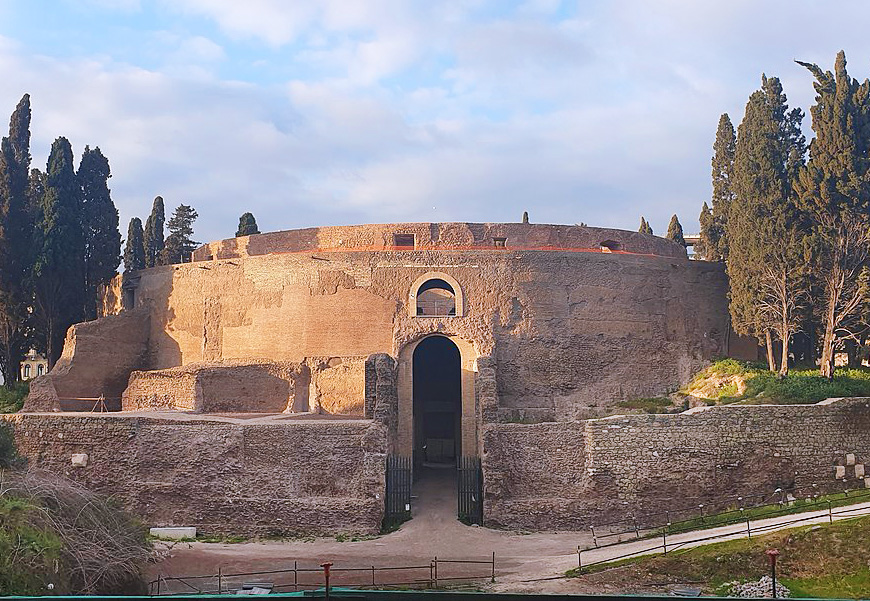
The humorous side of the Emperor was revealed when he said, “If you want rainbows, you have to deal with the rain” and “I’d always thought the world was a wish-granting factory.” He could provide tongue in cheek humor, such as, “Behold them, conquerors of the world, the toga-clad race of Romans!” But he could also be brutally blunt, “I came to see a king, not a row of corpses.”
Of his legendary military tactical skills, he remarked, “Better a cautious commander and not a rash one.” He was always confident in his decisions as evident in his quote, “I have never been overly concerned or obsessed with opinion polls or popularity polls. I think a leader who is, is a weak leader.”
His words still resonate and ring true in today’s political environment, two thousand years after they were first spoken – “To seek to keep the established constitution unchanged argues a good citizen and a good man.”
Augustus had an enormous sense of duty, evident when he wrote, “After this time I surpassed all others in authority, but I had no more power than the others who were also my colleagues in office” and “Having attained my highest hopes, Fathers of the Senate, what more have I to ask of the immortal gods than that I may retain this same unanimous approval of yours to the very end of my life.”
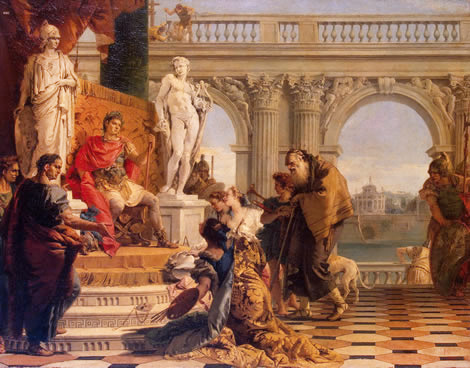
The Emperor also had a bit of a righteous streak, which was most telling in his words, “Those who slew my father I drove into exile, punishing their deed by due process of law and afterwards when they waged war upon the republic, I twice defeated them in battle.”
He also showed humility when he said, “I rebuilt the Capitol and the theater of Pompey, each work at enormous cost, without any inscription of my name.” Yet his pride was evident in the words, “The tales of our exploits will survive as long as the human voice itself.”
He also realized that life was fleeting in when he said, “We write our names in the sand and then the waves roll in and wash them away.”
His words were prophetic when he wrote, “Bear with me the hope when I die that the foundations which I have laid for its future government, will stand firm and stable” and revealed civility, even as a warrior – “Wars, both civil and foreign, I undertook throughout the world, on sea and land and when victorious, I spared all citizens who sued for pardon.”
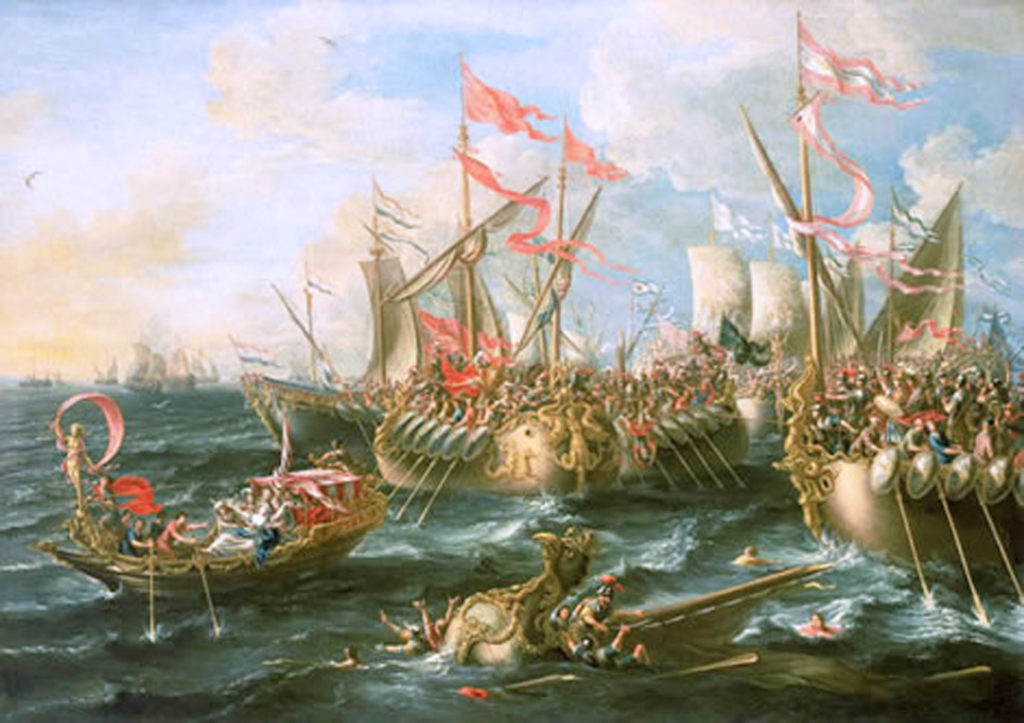
On his approach to economics and politics: “I had a good mind to discontinue permanently the supply of grain to the city, reliance on which had discouraged agriculture, but refrained because some politician would be bound one day to revive the dole as a means of ingratiating himself with the people.”
Regarding his younger days and the actions that he had taken, he reminisced, “At the age of nineteen, on my own initiative and at my own expense, I raised an army by means of which I restored liberty to the republic, which had been oppressed by the tyranny of a faction.”
He followed with the statement, “When the dictatorship was offered to me, both in my presence and my absence, by the people and senate, when Marcus Marcellus and Lucius Arruntius were consuls, I did not accept it.”
Later in life, as peace was achieved in the Empire, he wrote, “Let us be satisfied if we can make people stop short at unkind words.”
While addressing the forthcoming generations of Romans he wrote, “Young men, listen to an old man to whom old men listened when he was young.”
Humorously, Augustus is likely the first to utter words that have since been shortened to “Women, can’t live with ‘em; can’t live without ‘em,” when he wrote, “If we could survive without a wife, citizens of Rome, all of us would do without that nuisance; but nature has so decreed that we cannot manage comfortably with them, nor live in any way without them, we must plan for our lasting preservation rather than for our temporary pleasure.”
Brilliant and effective, two millennia after his death, the words of Rome’s most quotable Emperor still stir the soul.
